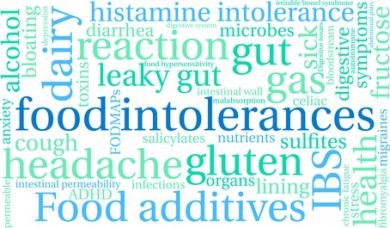
When Diet Changes Don’t Work
Lauren seemed to be at her wit’s end. We had been spending quite a bit of time recently trying to find a connection between her diet and her frequent headaches, fatigue and joint pain but despite eating a healthy and wholesome diet and doing “everything right” for a few weeks, she was still dealing with debilitating headaches, pains and extremely low energy levels that demanded frequent rest, which was next to impossible as an expat mom with small children. She mentioned feeling low and unable to see the light at the end of the tunnel, which was all very understandable.
While many people start feeling a lot better when they clean up their diet and start to prioritise self-care, some are slow to respond or even feel worse. This can be very confusing and frustrating. Making diet changes can be hard as it is and if you don’t see any improvement you start to wonder why you should be bothered to continue. There are a number of possible reasons that cause this “setback” and sometimes it is related to food sensitivities that are becoming more pronounced as you replace certain foods with healthier choices that are simply not right for you (yet).

The process of identifying trigger foods requires putting on a nutrition detective hat and getting really methodical about tracking food intake and symptoms. What makes it challenging is that food intolerances or sensitivities can be delayed and varied and can show up in a variety of different ways, ranging from digestive issues to skin itching, hives, sneezing, a runny or stuffy nose or as in Lauren’s case headaches, tiredness or joint pains. What’s more is that it can be about quantity or sometimes it’s not just one food, but an entire food group that causes these symptoms.
I have worked with clients who reacted to foods that have high levels of phenols such as histamine, salicylate or glutamates. Others reacted to FODMAPs, which are naturally occurring types of carbohydrates and sugar alcohols found in what are otherwise predominantly healthy foods. To most people these terms sound like a foreign language, which is why it can be very valuable to have the support of a nutritionist who knows what to look out for and so that you don’t feel like you’re going it alone. Knowing how frustrating it can be to work through this process I asked Lauren to simply use a food journal to write down when and what she was eating and when she was experiencing symptoms so that I could find the connections.

“When you’ve tried changing your diet, and things felt worse or no better, it may be time to go deeper and check for and eliminate food sensitivities. The best way to start is by optimising gut health, which includes your microbiome.”
More importantly, I showed her how to simultaneously heal and seal her gut and support detoxification. Because the questions to really ask are these: what is going on in there that is causing these reactions? Why is the immune system so hyper reactive? How is the microbiome, or gut health, impacting all of the symptoms? And how can we rebalance the microbiome so that food sensitivities go away naturally. Lauren is doing a whole lot better right now. We removed from her diet foods that are known to contribute to inflammation and joint pains in some people. We have been working on supporting top to bottom digestion, immune system support and she has incorporated detoxification support practices that include Epsom salt baths and lymphatic drainage massage.

As a result, her energy levels have improved, her headaches much less frequent, her joint pains are almost gone and she is beginning to see the light at the end of the tunnel. When you’ve tried changing your diet, and things felt worse or no better, it may be time to go deeper and check for and eliminate food sensitivities. The best way to start is by optimising gut health, which includes your microbiome. This is a very common challenge, and it’s easier when you have the right support and nutrition “detective” on your side that can find the connections for you and show you the way out. If you feel you need my support with this, sign up for a free nutrition breakthrough session on my website and let’s see how I can help.
Be well
Monique



